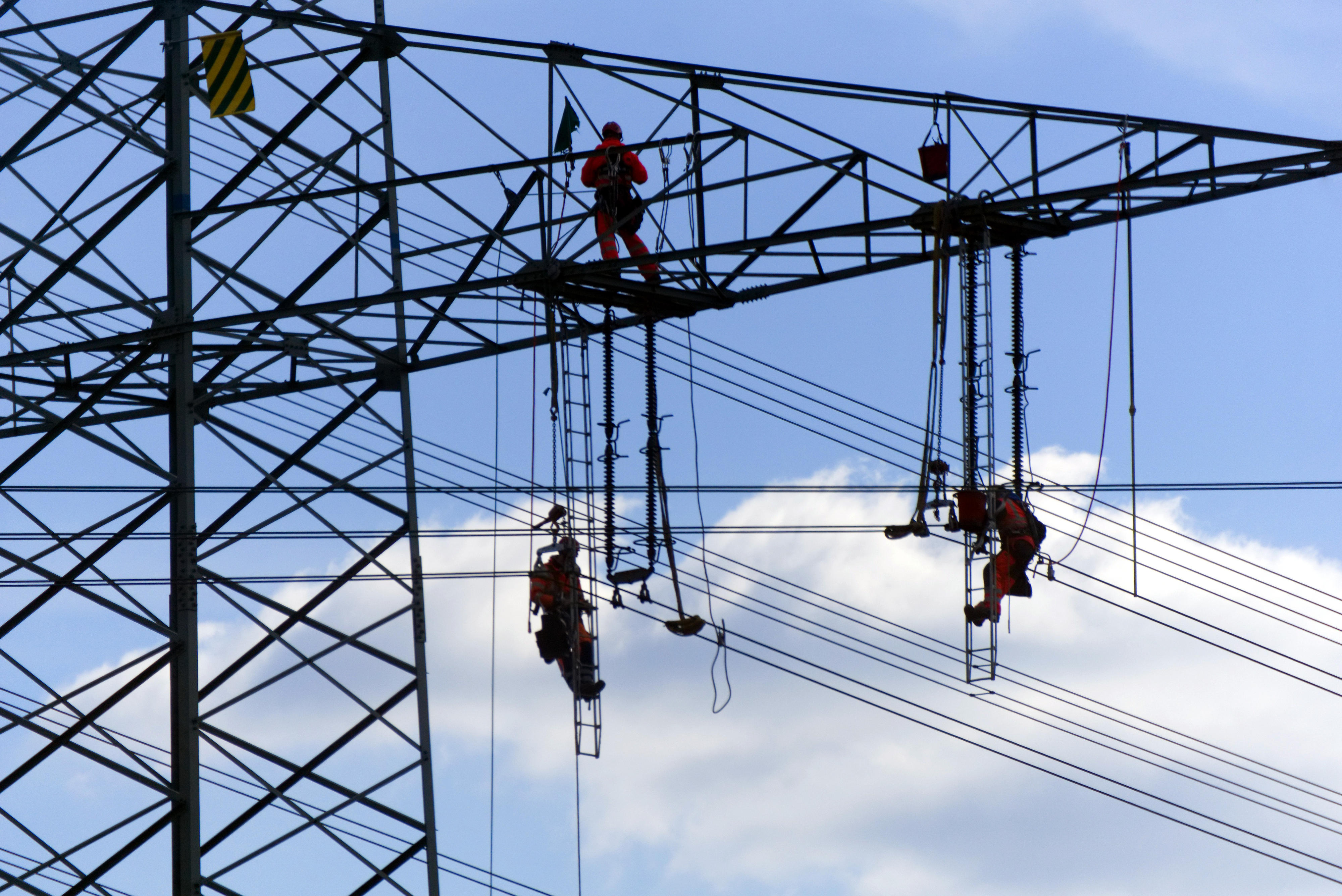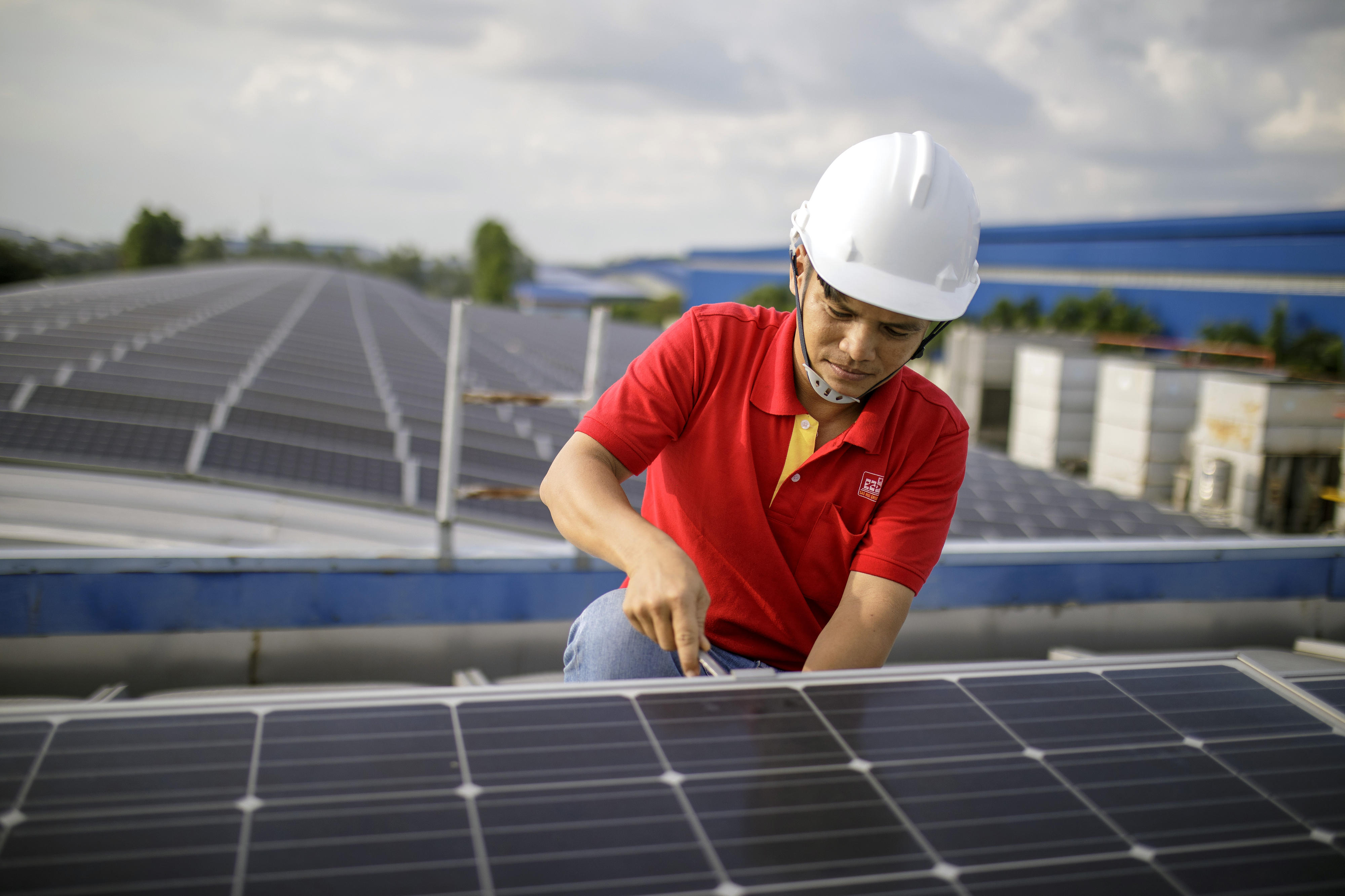Maintenance work on a high-voltage power line in Vietnam
Copyright© distel2610, via pixabay, CC0
Core area “Climate and energy, just transition” Increased use of renewable energy
Renewable energy and energy efficiency
Until recently, hydropower, coal and natural gas each accounted for one third of energy generation in Viet Nam. However, since 2017, the country has increased the share of solar and wind energy, bringing it to one third. This is the first milestone in Viet Nam's energy transition. Viet Nam wants to achieve, with international support, the goal of net zero emissions by 2050 and the goal of phasing out coal by the late 2040s.
With a view to achieving its ambitious climate goals, Viet Nam entered into a Just Energy Transition Partnership with the G7 International Partners Group (IPG) in December 2022. On 1 December 2023, Viet Nam launched its Resource Mobilisation Plan (RMP) for the Partnership, thus taking an important first step towards its implementation.
In order to achieve the net zero emissions target, it will be necessary for Viet Nam to reduce the use of fossil energy (coal phase-out) more quickly, expand renewable energy generation rapidly, and improve energy efficiency, which has been neglected so far.
An employee of Sao Mai Corporation works on a rooftop solar installation in Vietnam.
The BMZ is providing advice to the relevant line ministry, the government authorities that play a role for the energy transition and the government energy utility so as to assist them in building the necessary capacity. Viet Nam needs to improve the legal and technical environment for sustainable, efficient energy supplies and to reduce market barriers for domestic and international investors.
The BMZ is supporting its Vietnamese partners through policy and strategic advice, technology transfer, capacity building and quality assurance services in the areas of solar, wind and biomass energy, hydrogen, intelligent grids, energy efficiency, and grid development.
One important goal is to make the energy transition just. Such a Just Transition requires, among other things, structural adjustments in coal mining regions, vocational training for marginalised groups and groups that are particularly affected by the energy transition, and appropriate social and labour market policies.
As at: 19/01/2024

